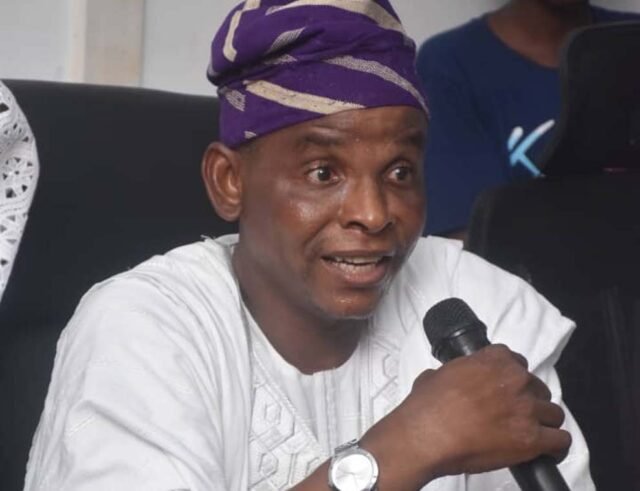In a decisive move aimed at transforming youth education and skills development, the Lagos State Government has announced an ambitious plan to establish five additional technical colleges, doubling the current number of government-run vocational institutions from five to ten. This initiative, championed by Governor Babajide Sanwo‑Olu, seeks to deepen technical and vocational training across Nigeria’s economic epicentre, enhancing employability and productivity.

Growth Strategy Approved By the Governor
Speaking at the 2025 Lagos Youth Skills Day event—held on July 15 at the Ikeja Secretariat and themed “Equipping Tomorrow’s Leaders with Skills for a Brighter Future”—Commissioner for Basic and Secondary Education, Tolani Alli‑Balogun, disclosed that Governor Sanwo‑Olu formally approved the creation of five new technical colleges. The expansion intends to strategically position one institution within each of Lagos’s five administrative divisions. This bid addresses both equipment shortfalls and enrollment stagnation in technical education.
“Establishing more technical colleges is long overdue,” Alli‑Balogun emphasised. “No nation has ever achieved meaningful development without the backbone of skilled technical manpower. It is our duty to educate local governments, communities, and parents about the importance of vocational training”—he said.
Addressing Skills Gaps and Community Engagement
Officials voiced concern that many parents remain uninformed about the far-reaching benefits of technical education. Alli‑Balogun stressed that changing this public perception is essential to drive youth participation. In his words, “We are convinced that equipping youth with the right set of skills secures their future as leaders and technicians in their communities.”
Meanwhile, Omotola Giwa‑Moore, Senior Special Assistant to the Governor on Technical Education, highlighted how Lagos Youth Skills Day serves as an annual platform to promote vocational skills for self-reliance, especially at a time when traditional white-collar roles have become increasingly scarce.
Private Sector Endorsement
During a breakout session, seasoned entrepreneur and furniture maker Feyisola Abiru hailed the State’s dedication to skill acquisition. She affirmed: “Youth are the future. The deeper we invest in their technical abilities, the higher our national productivity will climb. Technical colleges elevate employability and enhance the quality of our products.”
Realtor Dr. Saheed Mosadoluwa, who began his career as a bricklayer, counselled young people to abandon social vices and instead embrace learning vocational trades. His testimony underscored the potential: skilled youths not only lift themselves but can also lead others by offering employment and solutions to national challenges.

Lagos Mobilises for World Youth Skills Day
Ronke Azeez, Executive Secretary for the Lagos State Vocational Education Board, reaffirmed the annual celebration of United Nations World Youth Skills Day on July 15, a moment Lagos uses to showcase technical education. Students from the existing technical colleges—situated in Ikotun, Ikorodu, Epe, Agidingbi, and Adesoba—participate in community service driven by professional skills learned in school.
She implored government and corporate partners to go beyond infrastructure, pushing for enhanced access to information technology, digital training, modern labs, and real-world tools required to thrive in the 21st-century economy.
A Broader Context: National Reforms in Technical Education
This Lagos-centred expansion echoes broader federal initiatives. Earlier this year, the Federal Government announced upgrades across 38 technical colleges nationwide. These improvements usher in a dual‑training model—blending classroom instruction with hands‑on mentorship led by artisans, which now allocates 80 percent of learning to practical application, and 20 percent to theory.
Experts warn that this approach is pivotal to reversing declining enrolment trends documented earlier. A 2024 analysis revealed that technical-college attendance dropped from 76,000 in 2014/15 to just over 15,000 by 2021/22. Lagos’s intervention may serve as a test case for revitalising interest in vocational education across the country.
Why This Matters: Bridging Youth Unemployment and Technical Illiteracy
Lagos State, often dubbed Africa’s Silicon Valley, is Nigeria’s financial nerve centre. With over 90 million internet users and leading digital hubs, its demand for both high-tech and trade expertise is growing rapidly. As such, the technical colleges’ expansion is not just symbolic—it’s a strategic investment in the state’s economic resilience.
According to the National Bureau of Statistics, youth unemployment in Nigeria remains elevated, fuelled by a workforce misaligned with market needs. Many careers in trades and crafts go unfilled due to skill shortages, while unemployment continues to rise among educated graduates.
By adding five more technical colleges, Lagos aims not only to increase enrollment but also to enhance vocational training quality, empowering youth to occupy chartered positions in manufacturing, digital infrastructure, sustainable energy, and construction.
Community and Economic Ripple Effects
The addition of technical colleges offers multifaceted benefits:
- Local Employment Opportunities
Each new college will hire administrative and teaching staff and engage vocational trainers, creating ripple effects in the local labour market. - Skill-Building for Neighbourhoods
Offering accessible, community-based vocational schooling empowers residents to start small businesses and improve living standards. - Youth Empowerment and Crime Reduction
By substituting idle time with constructive training, these colleges provide positive alternatives, reducing the risk of youth involvement in crime or social vices. - Industry Linkages and Innovation
Collaborations with private and public sectors—like those observed in the National Dual Training scheme—will help technical graduates meet industry demands and potentially innovate.
Hurdles Ahead and A Call for Collaboration
Implementing a ten-college system will require sustained investment. Key needs include:
- Modern Infrastructure: Functional workshops with updated tools and safety regulations.
- Qualified Instructors: Skilled practitioners must be available to mentor and instruct.
- Digital Tools: Connectivity, computer labs, and software for technical fields like ICT, mechatronics, and electrical systems.
- Stakeholder Support: Local governments and Community Development Associations must track awareness efforts and promote enrollment.
Azeez highlighted these needs, stating that Lagos must now pair its expansion with improved digital access and immersive infrastructure to fully empower its youth.
A Transformational Model for National Emulation
While Lagos leads this charge, its impact could resonate nationwide. The Federal Government’s upgrades and dual-training blueprint demonstrate the technical education sector’s growing momentum.
Should these additions result in rising enrolment, job placements, and reduced youth unemployment, Lagos may provide a template for other Nigerian states, marking a new era of inclusive education.

Conclusion
Lagos State’s intention to double its technical colleges is more than educational infrastructure—it’s a strategic move to future-proof the state’s workforce. By aligning youth education with practical skill demands, Lagos is positioning itself to lead in vocational training, economic growth, and youth empowerment.
This expansion is a bold declaration by Governor Sanwo‑Olu’s administration: vocational training has a central role in the state’s—and Nigeria’s development journey.
Join Our Social Media Channels:
WhatsApp: NaijaEyes
Facebook: NaijaEyes
Twitter: NaijaEyes
Instagram: NaijaEyes
TikTok: NaijaEyes
READ THE LATEST EDUCATION NEWS








































